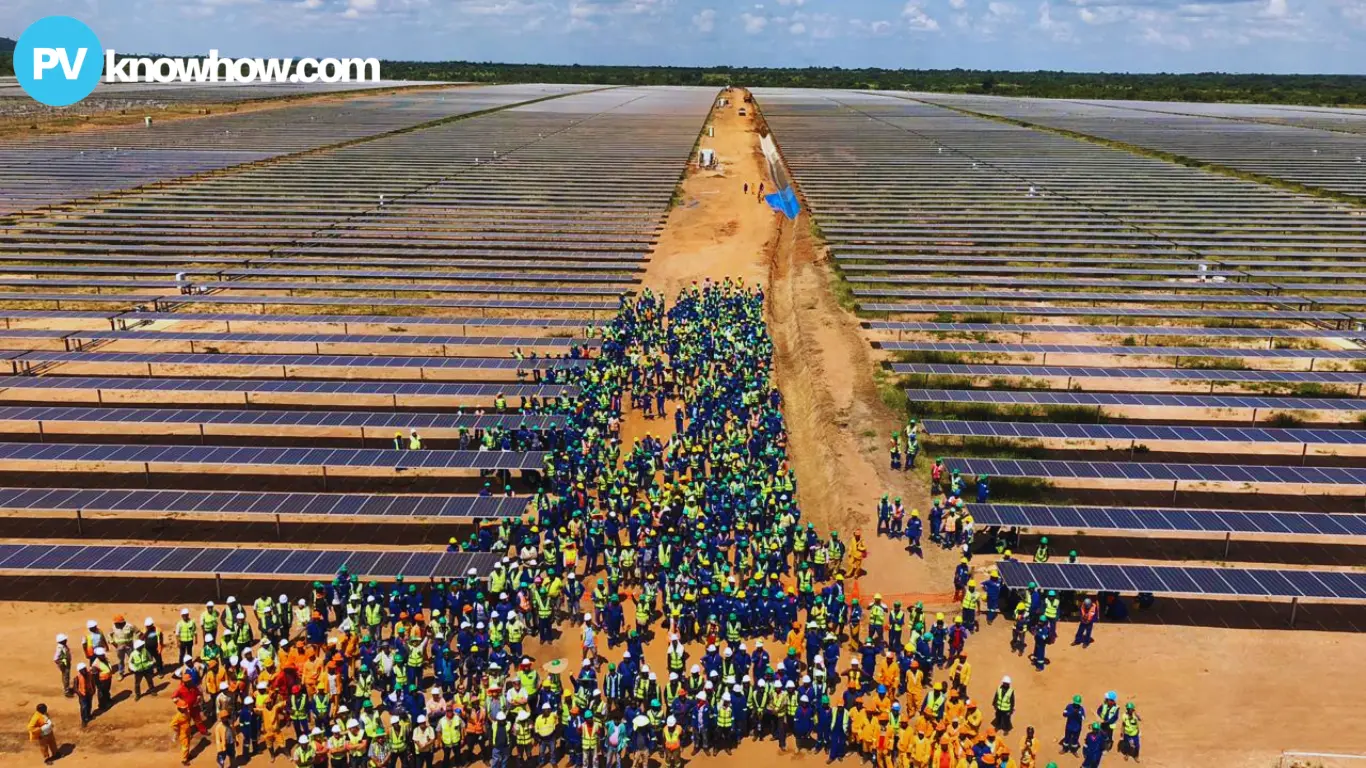A US$110.6 million solar project in Mozambique aims to support the country’s goal of universal electrification by 2030. Located in Moamba, the solar project will reduce reliance on hydropower, create jobs, and boost the local economy.
Solar Project: Boosting Mozambique’s Energy Sector
A new US$110.6 million solar project is set to be built in Mozambique. This development is a major step towards the country’s goal of achieving universal electrification by 2030. The solar project — planned for Moamba in Maputo Province — will help Mozambique tap into its abundant solar resources, helping to reduce its reliance on hydropower and diversify its energy mix.

Solar project Mozambique
The solar project will cover an area of about 142 hectares in the village of Matunganhane, near the Corumana Dam. The state-owned power utility — Electricidade de Moçambique (EDM) — is leading the project alongside several private companies through the operating entity Central Solar de Corumana. This collaboration will create jobs, boosting the local economy and supporting the growth of the region.
Mozambique is gradually becoming a leader in solar energy development, and this project is just one of many steps in that direction. The solar power plant — expected to generate 60 megawatts (MW) — is in line with the country’s Strategic Plan for the energy sector.
According to the environmental impact study, this renewable energy project will provide significant economic benefits for both Moamba district and Maputo Province. By contributing to the national grid, it will help meet the country’s energy needs while driving growth in local communities.
A Growing Solar Revolution
The new solar project is part of Mozambique's push to expand renewable energy. By 2030, the country plans to implement solar projects in Dondo, Lichinga, Manje, Cuamba, and Zitundo, aiming for a total capacity of 1,000 MW, marking a "true solar revolution."
Mozambique is currently heavily dependent on hydroelectric power, with the massive Cahora-Bassa Hydroelectric Plant generating over 82% of the country’s electricity. However, due to climate change and the increasing frequency of droughts, relying solely on hydropower poses risks.
The country’s Energy Transition Strategy acknowledges this challenge and highlights the need to build a diversified energy mix. By incorporating solar and wind energy, Mozambique can better adapt to changing weather patterns while ensuring a steady supply of electricity.
Mozambique’s solar energy production grew by nearly 14% in the first quarter of 2024, rising from 17,328 MWh to 19,688 MWh compared to 2023. Although solar still accounts for less than 0.5% of total energy production, the trend is promising as renewable projects expand.
Investing in a Green Future
Mozambique’s long-term energy goals are clear. By 2050, the government aims to have at least 7.5 gigawatts (GW) of solar capacity installed across the country. This would not only meet the domestic demand for electricity but also allow Mozambique to export green energy to neighboring countries. The export of renewable energy would generate additional revenue, further strengthening the national economy.
In addition to solar energy, Mozambique also has plans to develop wind power. Between 200 MW and 500 MW of onshore wind capacity is expected to come online by 2030 — particularly in regions like Lagoa Pathi in Inhambane. By diversifying its energy sources, Mozambique is positioning itself as a key player in Africa’s renewable energy sector.
The solar project at Moamba is just the beginning of what promises to be a large-scale transformation. According to the Energy Transition Strategy, the introduction of solar and wind energy will help Mozambique overcome the strategic challenge of balancing green energy for export with the energy needs of its industrial consumers.
The US$110.6 million solar project represents a significant milestone for Mozambique’s energy sector. By investing in renewable energy, the country is not only reducing its reliance on hydropower but also ensuring a more resilient and sustainable energy future. With plans to install 1,000 MW of solar capacity by 2030 and 7.5 GW by 2050, Mozambique is well on its way to becoming a leader in green energy in Africa.
